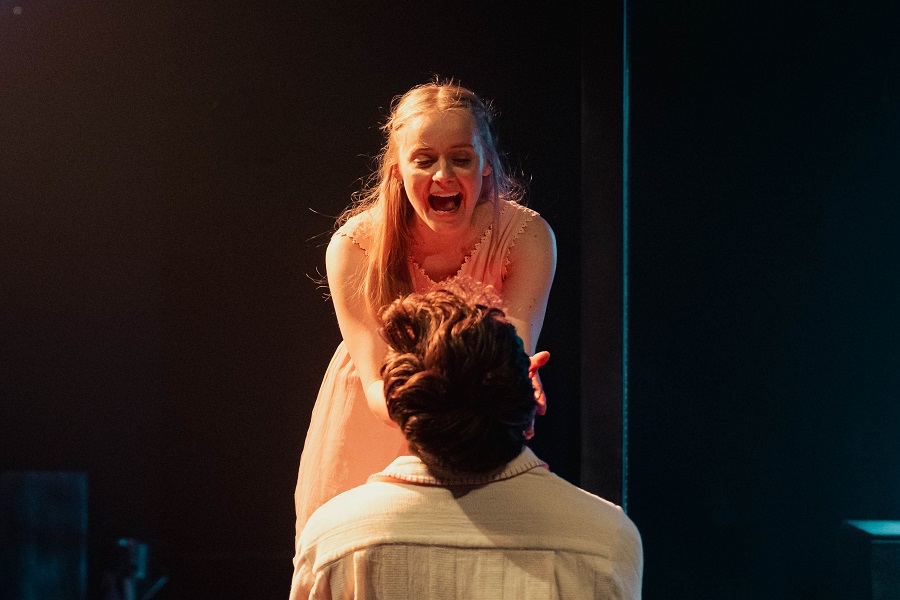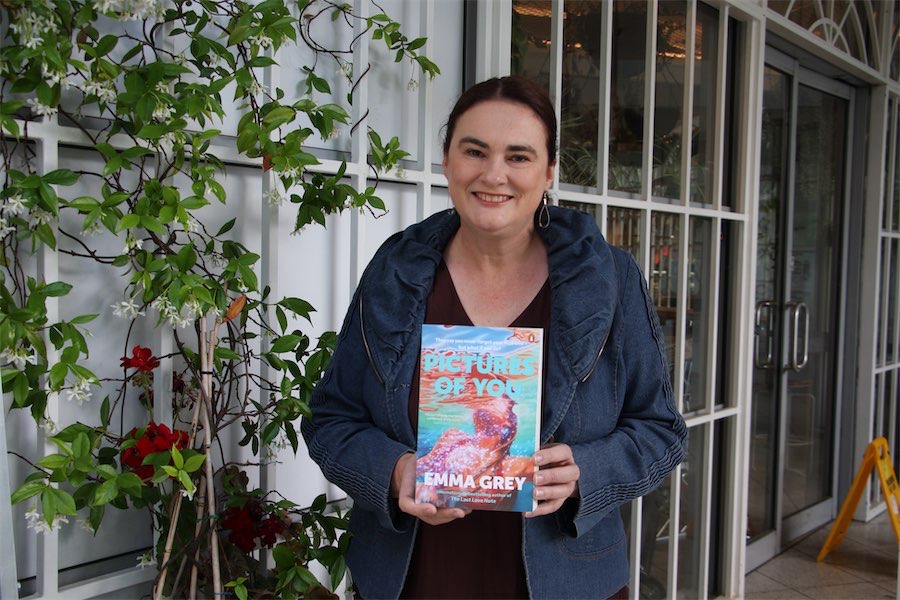
Theatre / “Whitefella Yella Tree”. Written by Dylan Van Den Berg. At The Courtyard Theatre until October 1. Reviewed by SAMARA PURNELL.
A VOICE-over to open “Whitefella Yella Tree” states that colonialism began a disconnection to country and a people, caught between contemporary society and an ageing identity.
The stage is set for a unique story to unfold.
Two 15 year-old boys from different mobs meet under the moonlight, by a strange tree, to exchange information on the movements of “white fellas” that have recently appeared on the shores.
An appealing set-design with plywood hills and rocks as a backdrop, a billy on a long-used firepit and a woven basket for food, sits under the dry, twisted branches of the “yella” tree.
Neddy (NIDA graduate and Helpmann Award winner Guy Simon) and Ty (Callan Purcell, whose credits include work with Opera Australia and honours in acting from the Royal Central School of Speech and Drama) exchange extravagant theories on the origins of this tree.
The boys’ costumes are contemporary, in fact they reference modern symbols of gay pride and indigenous land rights but this play is set in the early stages of white settlement in Australia.
Playwright Dylan Van Den Berg depicts black queerness as having always had a part in indigenous society, as shown when, although too shy to tell each other, the young protagonists openly describe to female members of their family, the sexual attraction they feel towards each other.
The childlike, juvenile banter, with some genuinely funny lines and the corny taunts of each other give way to poignant depictions of the passage of time and growing up, with their moonlight meetings eventually giving way to awkward physical encounters as they give in to their attraction and affection for each other.
Just as the tree looms above them, the weight of culture and eventually, the guilt and ideology of religious indoctrination hang over the young men. Ty sums up his frustration in trying to remember detailed stories and traditions that he must “Know about it, or knowing you have to know”.
The lighting design is dynamic, from subtle lights of changing seasons and day to night, to turbulent flashes and stark lighting as clashes with white men occur. The sound design, which is heavy handed at times, emphasises impending trouble. “Whitefella Yella Tree” feels richly immersive as the tree drops its fruit and the boys symbolically break open the sour fruit. The smell of lemons fills the space.
The fallout when white men finally reach the indigenous camps leads to a complex plan by Neddy. Frustrated by wanting to “do, instead of waiting and watching” he is caught between an exciting new love and the allure of food, trade and comforts offered by the new settlers, and an overarching plan to recover stolen family members.
As the boys’ story plays out, they ask “Where is safe?” A raw and confronting question as both their own culture and colonialism cause distress and confusion at various times to the young men.
“Whitefella Yella Tree” is a complex piece of theatre that presents a plethora of concepts to digest, while bringing aspects of indigenous sexuality into the spotlight. This attractive work is imbued with the weight of legacy, the lightness of love and the gravitas and impact of the arrival of the white fella.
In the closing scenes, under the “yella” tree, two young men will write their own Dreamtime story, in an emotional and symbolic conclusion.
Who can be trusted?
In a world of spin and confusion, there’s never been a more important time to support independent journalism in Canberra.
If you trust our work online and want to enforce the power of independent voices, I invite you to make a small contribution.
Every dollar of support is invested back into our journalism to help keep citynews.com.au strong and free.
Thank you,
Ian Meikle, editor



![Evie Hudson is a woman with amnesia, who forgets the last 13 years. Piecing her life back together, she navigates the harsh realities of coercive control.
Evie is the leading character in local author @emmagreyauthor's second novel Pictures of You.
Her debut book, The Last Love Note, sold more than 100,000 books worldwide within a few months of being published last year.
“I think that using amnesia really helped [show the effects of coercive control] because she had that sense of being completely lost in her own life,” Emma says of her new work of fiction.
To read the full story and find out more about this fabulous local author and her latest novel, visit our website at citynews.com.au or click the link in our bio! 📚✒️
#canberra #local #canberralocals #canberralife #australia #author #localauthor #Picturesofyou #coercivecontrolisabuse #dvawareness #bestsellingauthor #canberraauthor #localnews #citynews](https://citynews.com.au/wp-content/plugins/instagram-feed/img/placeholder.png)
Leave a Reply